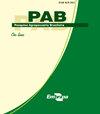Maturation and detachment force for mechanized harvesting of irrigated Conilon coffee in the Brazilian Cerrado
IF 0.7
4区 农林科学
Q3 AGRICULTURE, MULTIDISCIPLINARY
引用次数: 0
Abstract
Abstract The objective of this work was to determine the force required to detach fruits of Conilon coffee (Coffea canephora) genotypes in five maturation stages, to determinate the best stage for mechanized harvest, and to verify the possibility of future selections of genotypes adapted to mechanized harvesting. Harvests were carried out in the 2013/2014 crop season, and the detachment force was determined based for six fruits from each side of the crop row, collected randomly from the middle third of the plants. The detachment force curve was obtained for each cycle through logistic regression, using the R software. According to the duration of their cycle, the genotypes were divided into super early, early, medium, and semilate; the values of the coefficients of the detachment force curve equation were also obtained. There is genetic variability regarding fruit detachment force throughout the maturation cycle, which indicates the possibility of selecting genotypes adapted to mechanized harvesting. Fruit detachment force shows a considerable drop in the final stages of maturation. The raisin stage is the best for the mechanized harvest of irrigated Conilon coffee in the Cerrado.巴西塞拉多灌溉Conilon咖啡机械化收获的成熟和分离力
摘要本研究的目的是确定Conilon咖啡(Coffea canephora)基因型果实在5个成熟阶段分离所需的力,确定机械化收获的最佳阶段,并验证未来选择适合机械化收获的基因型的可能性。在2013/2014作物季节进行收获,根据每行作物每侧6个果实确定支队力,随机从植株中间三分之一处采集。采用R软件进行logistic回归,得到各周期的分离力曲线。根据周期长短将基因型分为超早型、早型、中型和半半型;得到了分离力曲线方程各系数的取值。在整个成熟周期中,果实剥离力存在遗传变异,这表明选择适合机械化收获的基因型是可能的。果实剥离力在成熟的最后阶段表现出相当大的下降。在塞拉多,葡萄阶段是机械化收获灌溉Conilon咖啡的最佳阶段。
本文章由计算机程序翻译,如有差异,请以英文原文为准。
求助全文
约1分钟内获得全文
求助全文
来源期刊

Pesquisa Agropecuaria Brasileira
农林科学-农业综合
CiteScore
1.20
自引率
0.00%
发文量
45
审稿时长
9-18 weeks
期刊介绍:
Pesquisa Agropecuária Brasileira – PAB – is issued monthly by Empresa Brasileira de Pesquisa Agropecuária – EMBRAPA, affiliated to Ministry of Agriculture, Livestock and Food Supply. PAB publishes original scientific-technological articles on Plant Physiology, Plant Pathology, Crop Science, Genetics, Soil Science, Food Technology and Animal Science.
Its abbreviated title is Pesq. agropec. bras., and it should be used in bibliographies, footnotes, references and bibliographic strips.
 求助内容:
求助内容: 应助结果提醒方式:
应助结果提醒方式:


